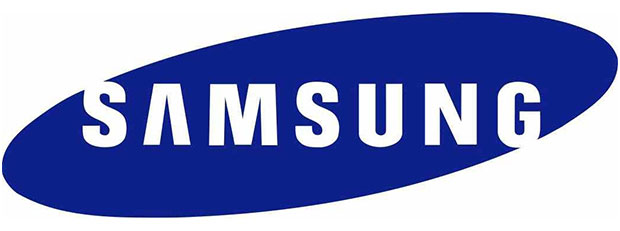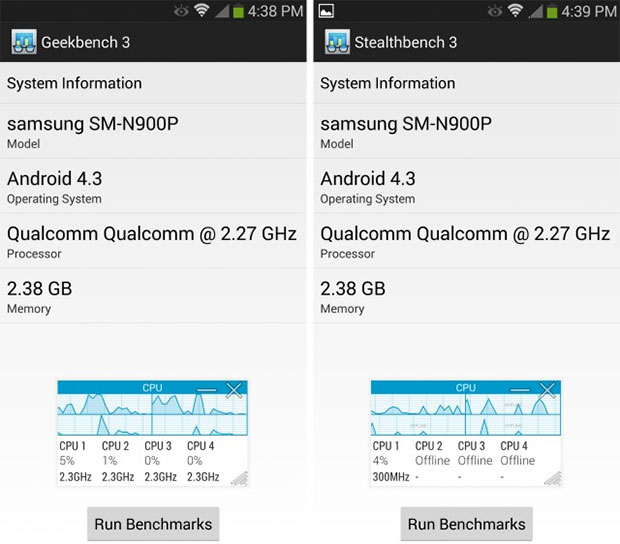
Samsung was caught this summer manipulating some Galaxy S4 benchmark results by boosting processor clock speeds in certain situations. Samsung professed its innocence, explaining that it adjusted clock speeds in certain “apps that may cause an overload.” It now appears that Samsung is at it again, this time with the Galaxy Note 3.
After a detailed investigation, Ars Technica has concluded that “Samsung appears to be artificially boosting the US Note 3’s benchmark scores with a special, high-power CPU mode that kicks in when the device runs a large number of popular benchmarking apps.” In fact, it found that some results were inflated by as much as 20 percent.
Popular benchmarking software including AnTuTu, Geekbench, GFXBench, and Quadrant, are all affected by a CPU boosting mode found in the DVFSHelper.java file which is normally for CPU throttling to manage heat and power draw.
Ars Technica identified the issue by renaming benchmarking suites so that Samsung’s code could not identify them and invoke its boosting code. For example, below you can see the difference between Geekbench 3 and Stealthbench 3, the same but renamed application. When the code does not recognize the app, it keeps three of the four cores offline:

The unfortunate irony in all this is that Ars Technica found that the Galaxy Note 3 still outperformed its competition when its boosting mode was disabled.
It also appears that the same benchmark manipulation is happening with the Samsung Galaxy Note 10.1 (2014).
It will be interesting to see if and how Samsung explains this one.
Source : Ars Technica
